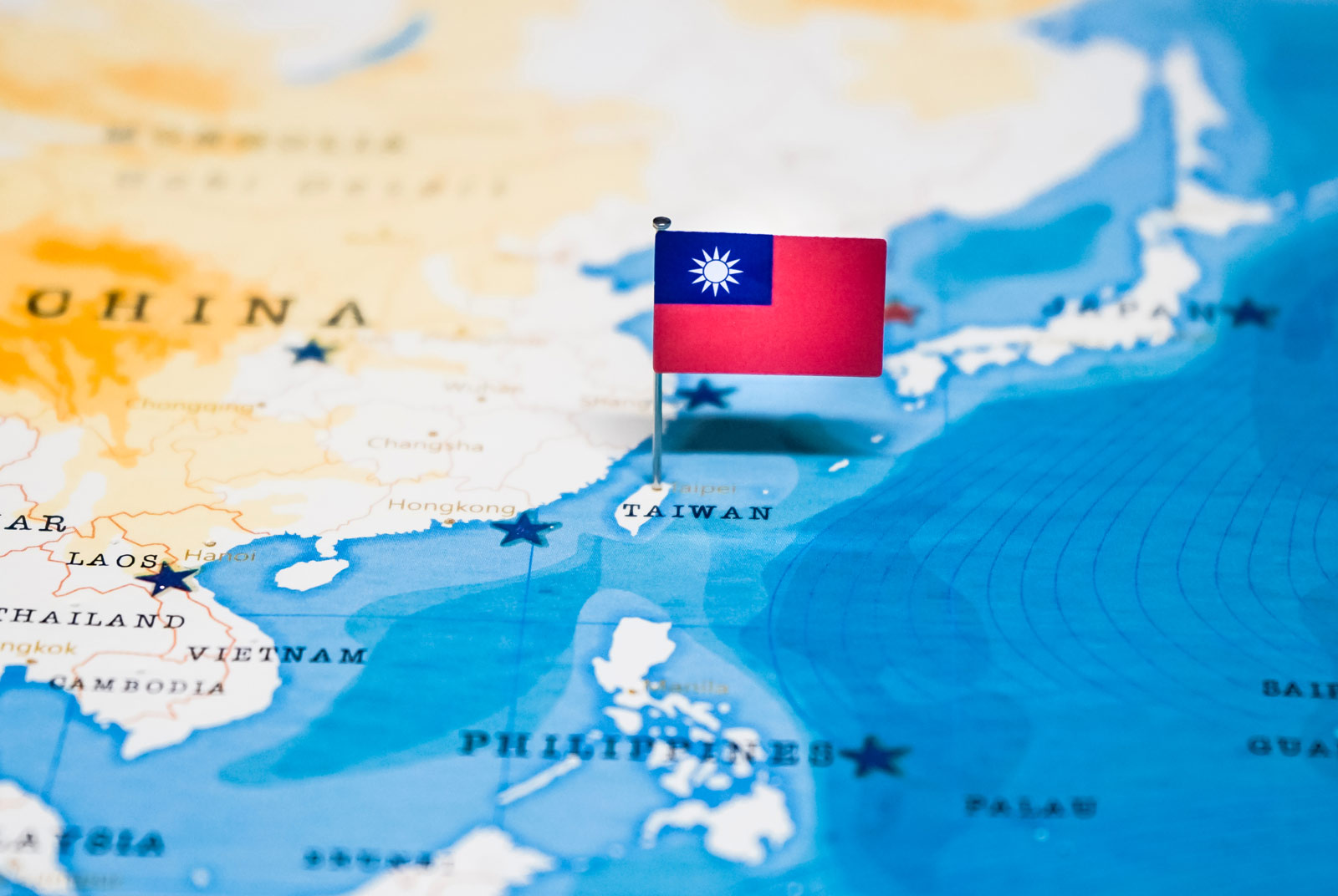How Europe looks at Taiwan – and how Taiwan fails to send out a clear message

Source:shutterstock
Since Russia’s war on Ukraine broke out earlier this year, Europe’s attention to Taiwan has increased remarkably. However, Taiwan needs to reach domestic consensus before reaching out to the world, argued Gunter Schubert, professor at Germany's Tübingen University.
Views
How Europe looks at Taiwan – and how Taiwan fails to send out a clear message
By Gunter Schubertweb only
Since the beginning of Russia’s war in Ukraine, Europe’s attention to Taiwan has increased remarkably. It had been on the rise for some time already, as highlighted in the lead article of the May 1st, 2021 edition of the Economist, which called Taiwan “the most dangerous place on earth”. This piece was written in the context of the U.S.-China trade war and the related shift in the international distribution of power, arguably to the benefit of China. Taiwan, the piece argued, would be the location of an ultimate showdown between both so-called superpowers. After Russia’s invasion of Ukraine, European elites and publics started to take Xi Jinping’s statements on Taiwan seriously and compare the island republic’s exposure to China with Ukraine’s relationship to Russia.
According to the general understanding in Europe, Taiwan claims to be a sovereign state called the Republic of China, a claim that the People’s Republic of China rejects and the international community has so far not supported because of China’s global importance and influence. China now seems ready to take the island by military force, thereby fulfilling the Chinese dream of “unification” and “national rejuvenation”.
Although the average European citizen knows little of Taiwanese history and the complicated nation-building process the Taiwanese people have been through since the end of World War II, Taiwan has become a symbol for standing up to powerful autocratic states that reject the rightful sovereignty of smaller, even democratically-governed states that must be supported to defend the liberal international order. In a way, European anxiety caused by the Russian war against Ukraine has been projected onto Taiwan’s struggle for independent statehood against an irredentist China. Consequently, at no time has European interest in Taiwan and the cross-strait conflict been stronger than today.
In an op-ed published by the Commonwealth Magazine last year, against a background of the intensifying intrusion of Chinese military aircraft and warships into waters and airspace close to Taiwan’s coasts, I raised the question of whether or not the Taiwanese were ready to face a belligerent China. This same question is now raised in many European countries.
Nancy Pelosi’s visit to Taiwan in early August and the ensuing military maneuvers by China’s People’s Liberation Army (PLA) around the island, accompanied by a litany of verbal attacks by the Chinese government against “foreign forces” colluding with Taiwan’s leaders to realize their evil objective of Taiwan independence, was closely followed in Europe. China’s new White Paper on Taiwan, published immediately after the Pelosi visit, which reiterates Beijing’s determination to bring about ‘unification’ no matter what, has been discussed intensively across Europe.
It is well understood that the stakes around ‘liberating’ Taiwan have been significantly raised from the Chinese perspective due to intensifying ‘Great Power’ rivalry between the U.S. and China and, more specifically, by the U.S. President Biden’s repeated public statements confirming that Taiwan will be defended against a Chinese invasion attempt. Europe is asking itself what role it should, and could, play in order to help Taiwan to bring home its point that China must not do as Russia has done in Ukraine.
But at the same time it is not fully clear for Europeans what Taiwan wants.
Having stayed in Taiwan for several weeks in September and October, I wanted to better understand what people in Taiwan think about all this. Taiwanese voices are hardly heard in Europe, which complicates understanding of the cross-strait conflict back in Brussels and in the EU member states.
However, such understanding is essential for making right policy choices. I talked to policymakers, those working at think-tank, academics and students at different Taiwanese universities, not to mention the usual exchange of ideas with taxi drivers and friends, to grasp the current mindset of the island population concerning a looming military conflict and Taiwan’s overall relationship with China — and the changes this mindset may have undergone over the last year.
There is of course much survey work done these days, trying to find out to what extent Taiwanese would be ready to stand up to China and fight for their democracy, if they trust their defense forces enough in the event of such a confrontation, and how optimistic they are about U.S. military support, both in terms of weapons procurement and, more important, the dispatch of U.S. troops.
Depending on one’s perspective, the overall trends of these surveys can either indicate more unity or more disunity in Taiwanese society when it comes to the question of how to respond to the China threat.
In any case, they are not conclusive. Summarizing the results of a number of polls conducted in Taiwan since the Chinese military maneuvers in August, some 50 percent of the populace is confident that the Taiwanese military could successfully defend the island against a Chinese invasion, but roughly a third is not.
While between 50 and 60 percent believe that the U.S. would actively defend Taiwan (though only a meager 12 percent think Washington would by means of dispatching soldiers), 30 to 40 percent doubt that. 60 to 70 percent of respondents declare their willingness to fight in a potential war, but around 30 percent would rather not. Interestingly, some 60 percent of Taiwanese across all age-groups are not worried about a war coming any time soon. Moreover, half of the Taiwanese think that Taiwan should keep equidistance between China and the U.S., while a third favors U.S.-Taiwan relations but concurrently wants peaceful relations with China.
And even though the Taiwan government welcomed Nancy Pelosi’s visit and some more U.S. delegations of House and Senate representatives thereafter, around 75 percent of Taiwanese seem convinced that this diplomatic traffic only enhances the danger of war, while more than half doubt that such visits are of any help in solving the problem of Taiwan’s controversial political status.
Many Taiwanese social scientists are trying to decipher the message behind all these figures, while some of them point out that they are all unreliable – not only because of the notorious swaying mood they identify in Taiwanese society, but much more so because a real war arriving at Taiwan’s coast one day would very probably entail a quick change of opinion to one side – either resolute resistance or early surrender! In fact, everybody is guessing, nobody knows.
What is most difficult to understand for Europeans, however, is the question of Taiwanese national identity and the related problem of a national consensus in defining Taiwan’s relationship with China. This is a topic that has been vigorously debated for decades within both the domestic political landscape and among scholars but has now gained new urgency as the ‘Taiwan question’ has been internationalized.
To make a long story short: Such consensus is out of reach, to the detriment of a consistent message Taiwan could send to Europe and the world reasoning the legitimacy of its claim to independent statehood.
The ruling Democratic Progressive Party (DPP) strictly adheres to its position of rejecting the ‘One China principle’ and the ‘1992 consensus’, claims sovereignty of the ‘Republic of China (ROC) on Taiwan’ (thus acknowledging PRC sovereignty over the Chinese mainland), though on the basis of a constitution adopted in 1947 that covers both Taiwan and the Chinese mainland.
The KMT, the major opposition party, remains committed to the ‘One China principle’ and the ‘1992 consensus’, claims ROC sovereignty over Taiwan and the mainland, hence fictitiously denying PRC sovereignty over China, and sticks to the ideal of ‘unification’ under the auspices of the ROC.
While both parties subscribe to the so-called ‘status quo’ in the Taiwan Strait, they are deeply divided on the question of what that ‘status quo’ stands for. For the DPP it means the maintenance of de facto independent statehood, call it the Republic of China on Taiwan or just Taiwan; for the KMT it means the ossification of contending sovereignty claims on both sides of the Taiwan Strait linked to a consensus that ‘unification’ shall be achieved one day, though never under Communist Party rule.
At the same time, there is a discursive undercurrent which links the legitimacy of independent statehood to a distinction between ‘Taiwanese’ and ‘Chinese’ identity on the one hand (the DPP) and to Chineseness on the other (the KMT).
It is complicated enough for most Taiwanese to make sense of who they are and where they are heading to – how could Europeans expect to understand?
From my personal perspective, forging a domestic consensus should be easy: Both party camps in Taiwan agree that they do not want to be governed by the Chinese Communist Party; they agree on Taiwan’s official name, the Republic of China, and on the 1947 ROC constitution as the basis of ROC independent statehood.
They differ on the concept of ‘unification’, which the DPP rejects and the KMT wants to see sustained — mostly for tactical reasons, as it still hopes (wrongly, according to my assessment) that the CCP would then be easier to handle.
Deep-seated mutual distrust between both parties make the forging of a consensus impossible as it would require compromise from both sides: The DPP would have to return to a formula, spelled out in the early years of the Chen Shui-bian era, that ‘unification’ is an option as long as it is not forced upon the Taiwan people and they freely consent to it; and the KMT, for its part, must limit itself to saying just that much. Such a message would make the Chinese government less than happy, but it would send a message to Europe that could be understood, resounding with the West German position of one nation, two sovereign states (for the time being) during the Cold War era.
The Taiwanese people and their political representatives must decide if they want to forge a national consensus on their relationship to China and communicate this clearly in Europe and beyond – or if they would rather prefer to adhere to an unclarified stance on their national identity and the concept of ‘unification’, giving in to uncompromising viewpoints and undermining any chances as gaining the lasting support of the countries that cherish democracy and admire their struggle for survival.
About the author:

Gunter Schubert is Chair of Greater China Studies and Director of the European Research Center on Contemporary Taiwan (ERCCT) at Tübingen University, Germany.
Have you read?
- Why does Lithuania support Taiwan?
- Is Taiwanese society ready to face a belligerent China?
- Taiwanese democracy is an international glimmer of hope
Uploaded by Ian Huang






